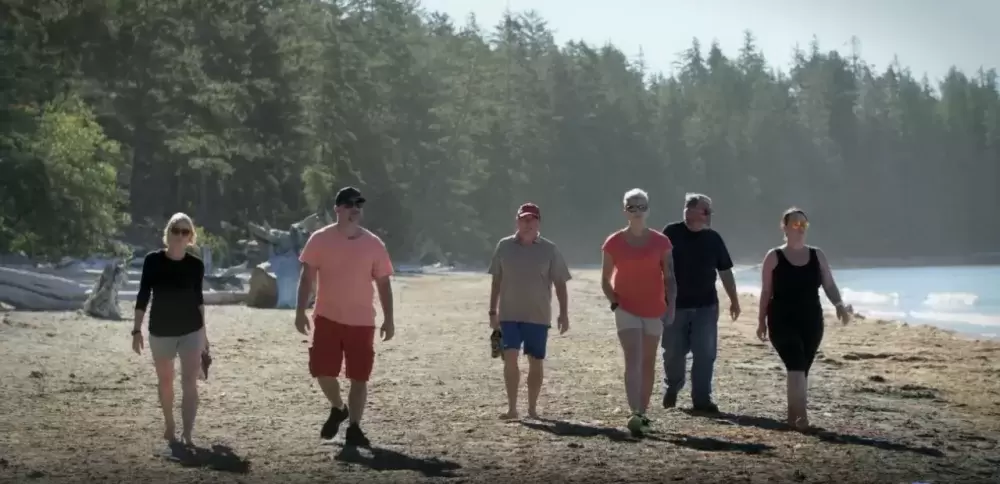This month a documentary series airs on APTN exploring preconceptions some Canadians hold about Indigenous Peoples.
“I think of alcoholism, I think of drug abuse,” says one of the show’s six participants about her thoughts of Aboriginal people in Canada.
“They always get money and handouts,” says another.
“How are they the worst off when they’re given so much?” asks a participant. “It feels like it’s just a lost cause at this point.”
First Contact takes six outspoken non-Indigenous Canadians on a 28-day journey through eight urban and remote locations, exploring the country’s First Nations communities and Aboriginal lives coast to coast. The series’ executive producer and writer Jeff Newman said the concept came from a similar documentary project that was produced in Australia.
“There’s a lot of similarities and parallels there in terms of the injustices and the negative treatment of the Indigenous people in both countries,” he said, adding that the intention of First Contact is to challenge the perceptions many Canadians have about Indigenous Peoples by confronting prejudices. “The plan was to try to provide real answers that Canadians just don’t know about, or are completely misinformed about.”
The show’s six participants come from different provinces, ranging in age from 26 to 65. Finding the right collection of people began with an ad requesting individuals with strong opinions who wanted to travel Canada. Newman said the show’s producers were looking for honest people with some commonly held beliefs regarding Indigenous people in Canada.
“We spent a lot of time interviewing people,” he said. “We weren’t looking for people that were trying to tell us what we wanted to hear. We were looking for people that weren’t afraid to express what they really felt.”
The participant’s cross country tour of Indigenous life ended with a stop in Ahousaht in the summer of 2017. Over a few days the six spent time with several members of the community, including Chief Councillor Greg Louie.
“Many people had good honest conversations with them,” said Louie, noting that his interactions with the group included a two-hour session in his office.
“Lots of them were unaware of the Indian Act, that we were wards of the government and that we weren’t allowed to vote until the ‘60s,” he added. “Women lost their status if they married a non-native, they were totally unaware of that. It’s important for people like these people, and the broader society in general, to know this and understand this.”
“Two of the six participants had no concept of what a residential school was at all,” noted Newman. “When they start receiving that knowledge, then they’re in a better position to formulate an opinion or potentially change their impressions of what they know and see first-hand on a day-to-day basis.”
Louie observed a variety of impressions made on the group during their time in Ahousaht, although they all appeared to be more at ease as they walked down the dock at the end of their time in the community. One participant even made a contribution at a potlatch that the group attended.
“One fellow made a presentation to the host, which was a young man, gave him a donation,” said Louie, adding that the six also took part in cultural ceremony while in Ahousaht.
“I was a helper in that and what I witnessed was some real change,” he said. “The levels of emotion were different amongst them. Some were really high, they really got something out of it, others were in between.”
Through his experiences in working with Indigenous people across Canada, Newman believes that an unnecessary divide exists due to many Canadians being unaware of what they don’t know about First Nations, Metis and Inuit.
“Canadians, they don’t go to reserves, they don’t interact and connect with Indigenous people, for the most part. There’s a lot of fear, there’s a lot of assumptions that are made, there’s a lot of misinformation that has been passed down from generation to generation,” he said. “There’s so much to learn, and it’s not happening enough. It’s time for the rest of Canada to recognise that, and everyone is stronger for it.”
“In order for reconciliation to happen, the truth has to be spoken,” said Louie.
First Contact airs on the Aboriginal People’s Television Network Sept. 11-13, starting at 7p.m. ET.







